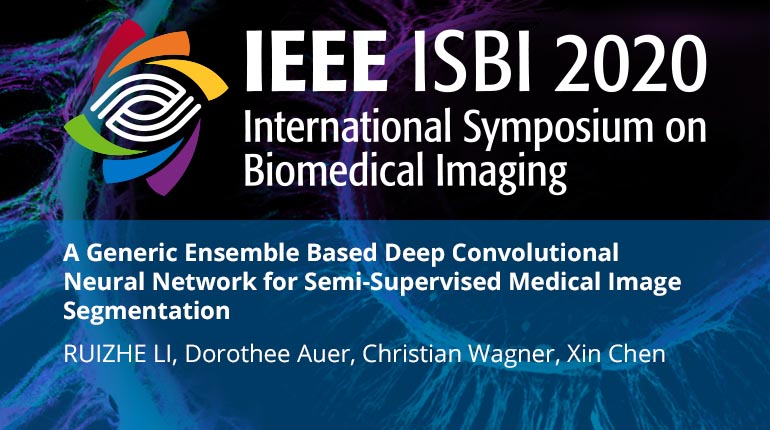
Already purchased this program?
Login to View
This video program is a part of the Premium package:
A Generic Ensemble Based Deep Convolutional Neural Network for Semi-Supervised Medical Image Segmentation
- IEEE MemberUS $11.00
- Society MemberUS $0.00
- IEEE Student MemberUS $11.00
- Non-IEEE MemberUS $15.00
A Generic Ensemble Based Deep Convolutional Neural Network for Semi-Supervised Medical Image Segmentation
Deep learning based image segmentation has achieved the state-of-the-art performance in many medical applications such as lesion quantification, organ detection, etc. However, most of the methods rely on supervised learning, which require a large set of high-quality labeled data. Data annotation is generally an extremely time-consuming process. To address this problem, we propose a generic semi-supervised learning framework for image segmentation based on a deep convolutional neural network (DCNN). An encoder-decoder based DCNN is initially trained using a few annotated training samples. This initially trained model is then copied into sub-models and improved iteratively using random subsets of unlabeled data with pseudo labels generated from models trained in the previous iteration. The number of sub-models is gradually decreased to one in the final iteration. We evaluate the proposed method on a public grand-challenge dataset for skin lesion segmentation. Our method is able to significantly improve beyond fully supervised model learning by incorporating unlabeled data. The code is available on Github.
Deep learning based image segmentation has achieved the state-of-the-art performance in many medical applications such as lesion quantification, organ detection, etc. However, most of the methods rely on supervised learning, which require a large set of high-quality labeled data. Data annotation is generally an extremely time-consuming process. To address this problem, we propose a generic semi-supervised learning framework for image segmentation based on a deep convolutional neural network (DCNN). An encoder-decoder based DCNN is initially trained using a few annotated training samples. This initially trained model is then copied into sub-models and improved iteratively using random subsets of unlabeled data with pseudo labels generated from models trained in the previous iteration. The number of sub-models is gradually decreased to one in the final iteration. We evaluate the proposed method on a public grand-challenge dataset for skin lesion segmentation. Our method is able to significantly improve beyond fully supervised model learning by incorporating unlabeled data. The code is available on Github.
 Cart
Cart Create Account
Create Account Sign In
Sign In





